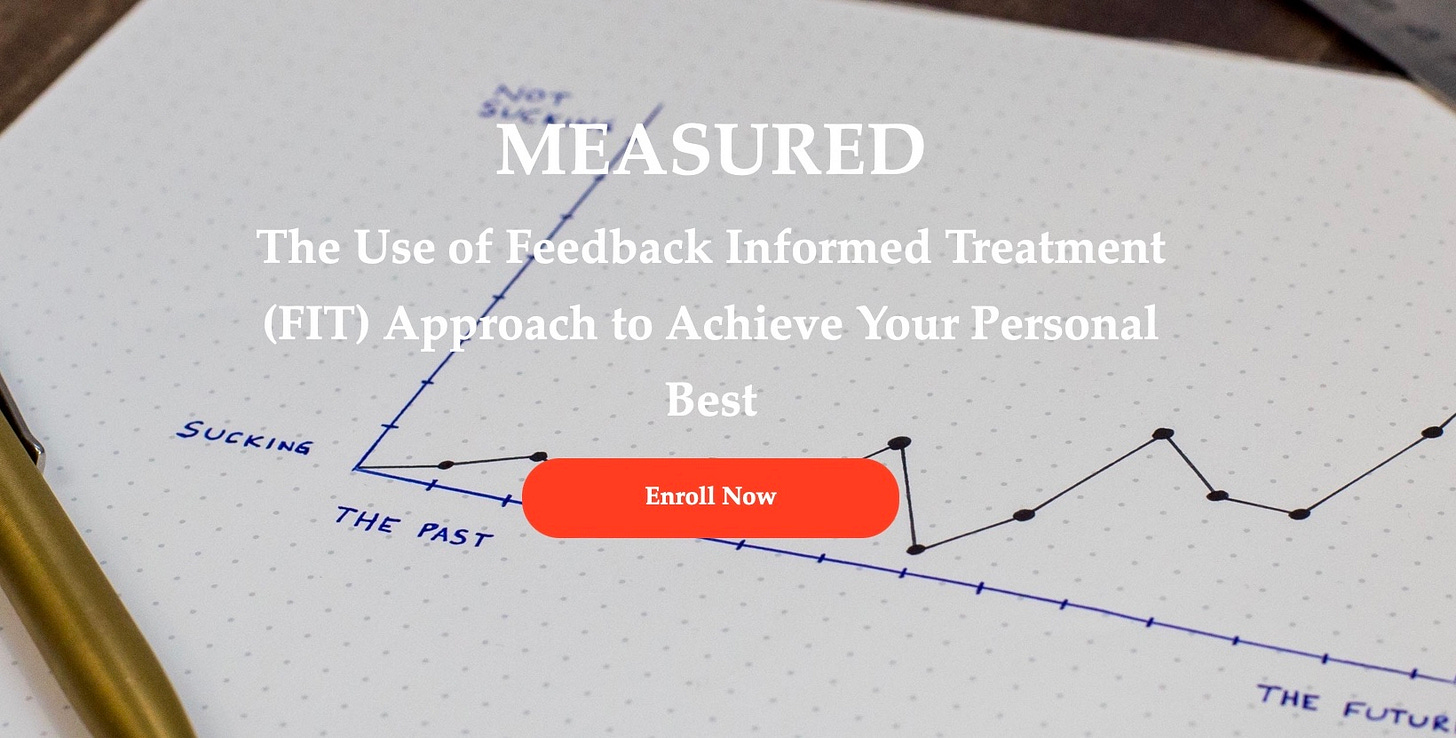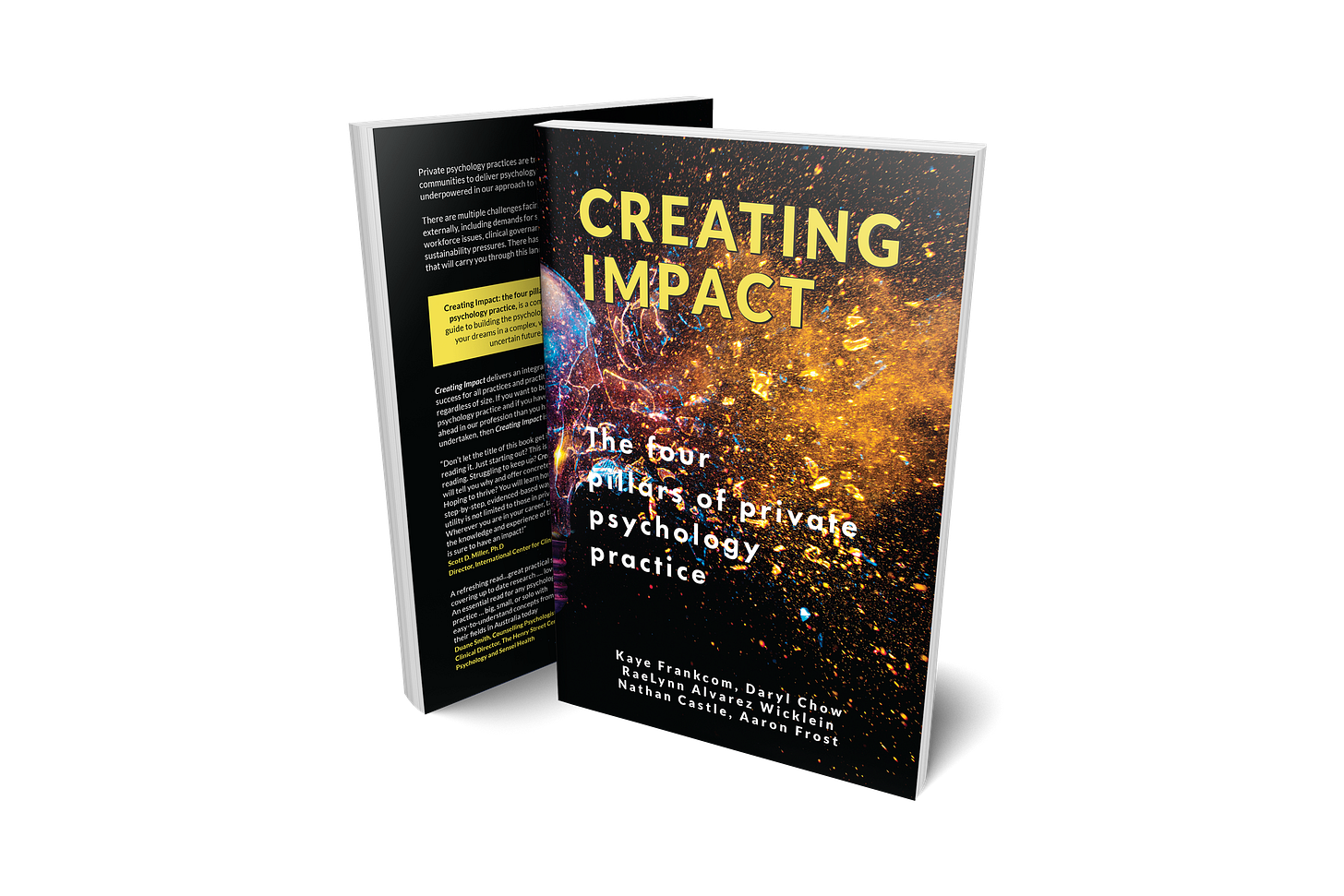Frontiers Friday #121: A Roundup of Frontiers in 2022 ⭕️
Pulling together all the blogs, videos, audio from Frontiers of Psychotherapist Development (FPD), 2022.

Greetings from Singapore.
One of the joys of starting Frontiers of Psychotherapist Development (FPD) is the amount of side conversations it has sparked over the years. Hearing from folks all over not only gets me out of my shell, but also made me reconsider things I take for granted.
For instance, over the last few months, I’ve heard from several people who spoke on a recurrent theme: feeling inadequate and feelings of shame after attending psychotherapy trainings or related events that are supposed to be growth promoting. (One of them was a powerful comment by Kristi in last week’s newsletter, FF120. An Open Dialogue).
Some years ago, I was receiving training and supervision in a particular modality. I presented recordings of my work, which I was very appreciative of, rather than just talk about a case. It was hard to admit it then, but I was left feeling like I wasn’t doing it “right.” Put bluntly, especially to another male, I felt small and stupid. I tried to give voice to those unsettling feelings. The advice I got was to hone in further on that particular approach, and “pick more suitable clients” to present for supervision. (Yeah. I couldn’t believe it either).
Shame makes us retreat. The antidote to shame is to gently bring it to the light into an invitational space.
Strange World in Strange Times
I want us to talk more about this.
It’s a strange world.
Over the last year or so, I’ve had to speak up for practitioners to regulation bodies due to “ethical” concerns. And the strange thing was, these practitioners who were questioned for their actions were probably the rare few I know who really have their moral compass in check.
Two weeks ago, over at a friend’s place for dinner, my friend’s wife raised the topic about how therapists (that she knows) can’t say how they really feel. I said to her that I it’s an imperative therapists learn to share our relevant thoughts especially if it’s for their therapeutic gain and it’s life-affirming.
She said, ”What? I thought you’re supposed to be neutral?”
“I don’t think you can be neutral. If their ‘junk values’ is causing them misery, I would at least try to point it out,” I replied.
But I appreciated where she was coming from. When are we overstepping the line? What if we aren’t politically correct, un-woke, and refusing to play the virtue signaling game?
Our role is to help each person come alive. If we keep sitting on the fence all the time, one, your arse is gonna hurt, and two, we are doing a disservice to others.
So, who gets to speak the truth in a strange world in strange times?
Comedians.
2022 Roundup
For today’s missive, I’m pulling together all the writings, videos, podcasts, and courses that happened in 2022.
Three reasons why I’m doing this:
Making it easy for you to access stuff that you might be interested in,
Helping myself figure out where I’ve been and where I wanna go, and, most importantly,
Spark further conversations. Conversation is the highest art form.
Instead of listing them in chronological order, I’ve organised the stuff in categories so that it would be easier for you to zoom in on areas of interest.
Keep me honest so that I earn my keep. Let me know your thoughts and reactions from these pieces. Leave a comment below. That’s one way we can keep the conversation alive.
On Deliberate Practice:
Personalised (and Personal) Learnings:
Looking Back at 2021 (my annual reflection)
The Difference Between What’s Right and What’s Right For You
Pay Careful Attention To a Highly Sensitive Person’s Inner Life
Clinical Supervision:
First Principles:
Structuring Sessions:
Podcast/Videos
#11. The Edges and Leverages on Using Deliberate Practice Keynote Address
#12. What does "Reigniting Clinical Supervision" Actually Look Like? (Therapy Tip of the Week #1)
#16. The Devil is the Details Between Sessions (Therapy Tip of the Week #4)
#19. How to Elicit Nuanced Feedback Therapy Tip of the Week #6
#20. Less Like an Assessment Tool…(Therapy Tip of the Week #7)
Deliberate Practice: Three Steps (Webinar) with Scott Miller and Daryl Chow
Videos on Using Obsidian (Free) Software to Create a Personal Learning System (PLS)
Obsidian is probably the only software I truly enjoy using. It has been invaluable to me, not so much as what others call a PKM (Personal Knowledge System) or a “second brain,” but as a Personal Learning System (PLS). The intent is not just to manage inputs, but to promote deep learning and transferring these insights into clinical application.
How to Begin Using Obsidian to Become a Deep Learner
How to Organise Your Notes to Improve the Learning Process (Part II)
9 Highly Recommended Plugins for Obsidian (Part III)
What Use Is the Graph View in Obsidian? (Part IV)
Appeared On:
Mad in Norway Podcast with Birgit Valla
Undoing the Intake Model: Improving First Sessions in Psychotherapy Episode #150Thoughts on Record with Dr. Daryl Chow - Deliberate Practice in Psychotherapy
Safer Society Free Webinar Achieve Better Clinical Results with Deliberate Practice
Frontiers Friday Newsletter Topics in 2022
Deep Learner (4 Parts)
Client Point of View (4 Parts)
Tech Tools for Therapists (4 Parts)
Emotions (6 Parts)
Sensitivity (3 Parts)
Alliance (6 Parts)
Existence (6 Parts)
Play (3 Parts)
Courses
New Releases in 2022.
(Note: The next cohort are not yet released. Email me if you would like to be on the waitlist for the relevant courses)
Book released in 2022
Note:
These newsletter are free, but many hours are spent handpicking the curated list that make it to Frontiers Friday, as well as writing the essays and recording the videos and podcasts. Amazon affiliate links, if any, are to help ease the costs. You can also support the sustenance of this work by picking up any of the books, dive deep into our courses, or gifting them to others.
Big thanks.
Please excuse any typos.
Daryl Chow Ph.D. is the author of The First Kiss, co-author of Better Results, and The Write to Recovery, Creating Impact, and the forthcoming edited book, The Field Guide to Better Results.





Hi Daryl
I just say WOW!
Amazing that you make such an effort to provide us readers with such service.
I have read your FPD for several years with great benefit and pleasure.
Several times I have come across posts you have written and I have given some a red flag to be able to go back to it but my system has not been so clear.
Collecting everything in a file in this way makes it a lot easier.
Thanks for that!
Your ability to organize a system around things is deeply impressive. Personally, I find it difficult to create my system. (despite my old age and long working life)
Your introduction about shame feels really central and something we are not used to talking about in, for example, supervision
Yesterday I met 2 new workgroups in which I will be a supervisor.
We talked a lot about frameworks and arrangements for how we should work together and, of course, expectations for each other's roles.
But I didn't touch anything about shame and what it can do to us when we expose ourselves to colleagues. We touched on the importance of feeling safe but, as I said, nothing about shame.
The supervision context means a situation of being scrutinized and then there is the proximity of shame there as well.
The one I take with me is to be more aware of this and as you say gently bring it to light and together with the group create the habit of talking about shame.
Greeting
Bengt